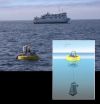The researchers explain that online health information searches are the third most popular activity in Google, with 170,000 searches performed every 5 seconds. Isabel Segura Bedmar of the UC3M Computer Science and Engineering Department points out that, "There is a lot of user-generated information these days, so social networks can be a valuable source of information on adverse effects of pharmaceutical drugs after the clinical trial stage is over and the drug is on the market." The large amount and variety of information to be stored, as well as its rapidly changing nature, make this a typical big data problem. The prototype, created by these scientists within the framework of the European research Project TrendMiner, makes it possible to analyze the comments on social media by using natural language processing techniques (NLP). Thanks to these techniques, patients' colloquial descriptions are "translated" into manageable data in comparatives studies which allow us to identify patterns and trends." This data may also be combined with data from other sources, such as patients' electronic medical records, which contain very useful information about diagnosis, treatments, etc. Most of this information is also expressed in natural language, which means that it must be codified and turned into structured information in order to be able to work with it," explains another of the researchers, Professor Paloma Martínez, of the Advanced Databases Laboratory at UC3M. The prototype created to analyze comments on social networks contains a linguistic processor based on the Daedalus company's MeaningCloud, a commercial technology for the analysis of big data which recognizes mentions of pharmaceutical drugs, adverse effects and illnesses. The system displays the development of these references and their "co-occurrences" i.e., it registers which drugs are mentioned and what the adverse effects are. For example, the system monitors anti-anxiety drugs and to do so it takes into account not only the references to the active ingredient or generic name of the drugs in this category (among others lorazepam and diazepam) but also commercial brand names (such as Orfidal). In addition, all of these drug references may also be analyzed in relation to their therapeutic effects (such as Orfidal being indicated for anxiety) and their adverse effects (such as Orfidal possibly causing shaking and tremors). This technology could also be used by a pharmaceutical company in order to "find out what people are saying about a drug, for example, or to gather information on suspicions of adverse effects of drugs to supplement notification received through traditional channels," comments José Luis Martínez Fernández, who combines teaching in the UC3M Computer Science and Engineering Department with his work as Consulting Director at Daedalus. There are parts of medical reports, notes or clinical histories "which are difficult to process, and because of this they are not being worked on; this technique could help us to get the most out of this content," he explains. "The challenge is to transform these texts, which are currently stored without being analyzed, into structured information, which allows them to be used for clinical and epidemiological purposes to gain new knowledge or to analyze trends which aid decision-making," he stresses. In addition, the researchers point out that, as a result of this work, the first Spanish language database which makes it possible to compile information about drugs and their adverse effects in the same place has been created within the framework of this project. Some of the results of the study were made public last year at a scientific conference in Gothenburg (Sweden) and a more detailed paper will be published in the journal BMC Medical Informatics and Decision Systems. Adverse drug effects Adverse Drug Reactions (ADR) are the biggest safety concern in the health field. Adverse Drug Reactions refer to harmful and unintended effects of drugs administered for the prevention and treatment of illness, both at normal dosages and in cases of incorrect usage or errors in medication. ADRs are the fourth cause of death for patients in hospitals in the U.S. Therefore, the pharmacovigilance area is receiving a great deal of attention at the moment, due to the high incidence of ADRs and the high associated costs (between 15 and 20 percent of hospital expenses are due to drug-related complications.) There are certain adverse drug reactions which are not discovered during clinical trials because they do not become known until the drug has been on the market for several years. Therefore, medicine regulatory agencies have to monitor ADRs once the drug is on the market, and the main tool at their disposal is a system of voluntary notification whereby medical professionals and patients can report suspected ADRs (in Spain patients have been able to do so since July 2012). However, these systems are hardly used, and estimates indicate that only 5-20% of ADRs are reported, either due to lack of time, the complexity of the process, lack of knowledge of ADRs or poor coordination among healthcare staff, say the researchers.
INFORMATION:
This study was funded by the European Project TrendMiner [FP7-ICT287863] and the MULTIMEDICA project [TIN2010- 20644-C03-01]. The following institutions are members of the research consortium: Ontotext, Eurokleis, Internet Memory Research SAS, Sora, DFKI, University of Sheffield, University of Southampton, Research Institute for Linguistics from the Hungarian Academy of Sciences, Institute of Computer Science from the Polish Academy of Science, as well as Universidad Carlos III de Madrid.
Video: https://youtu.be/B8UvyQ7nyr8
More information:
Isabel Segura-Bedmar, Paloma Martínez, Ricardo Revert y Julián Moreno-Schneider (2015). Exploring Spanish Health Social Media for detecting drug effects. BMC Medical Informatics and Decision Systems. Accepted for publication.
Isabel Segura-Bedmar, Ricardo Revert, Paloma Martínez (2014). Detecting drugs and adverse events from Spanish social media streams, Proceedings of the 5th International Workshop on Health Text Mining and Information Analysis (Louhi) @ EACL 2014. Gothenburg, Sweden, April 26-30 2014, pages 106-115, (pdf).
TrendMiner Project website: http://www.trendminer-project.eu
https://youtu.be/B8UvyQ7nyr8



